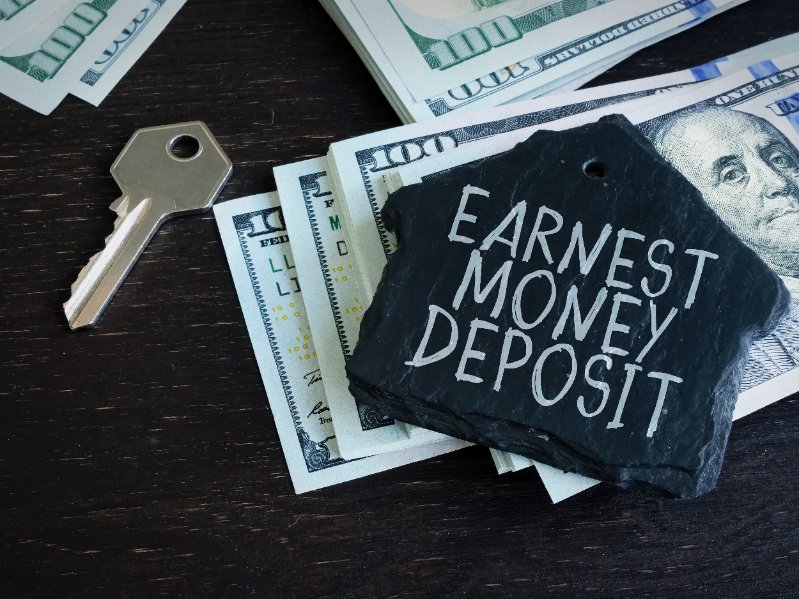Securing a loan to buy a home comes with quite a few steps and terms. From down payments (read our other blog on this here) to DTI ratios (and another one here), the terms and requirements can get daunting. With the right team, you don’t have to feel overwhelmed. We can help. This blog is all about earnest money and how it’s used during the home buying process.
Earnest money is a good faith deposit toward a home you’re looking to purchase. It shows the level of commitment and interest your have in a home. It may not be the reason you seal the deal, but many times the amount of earnest money someone puts down strongly affects the seller’s motives to accept or reject an offer. Note: earnest money is not a down payment, but it can be put toward a down payment (which is the sum of money paid upfront on the purchase of a home).
How Much?
Your real estate agent can advise you on how much to put down for an earnest money deposit. It is generally determined by you and your real estate agent and is often dictated by regional practice. Recently, we’ve seen recent earnest money deposits range from $500 to $100,000 depending on the price of the home for sale and the demands of the market.
Who Holds It?
Once your offer has been accepted, your earnest money deposit will either be given to the title company to hold it in an escrow account or in a broker’s trust account. Do not give this money directly to the seller—if you do this and things go south, you probably won’t see that money again. Once your due diligence is performed and the sale approaches settlement, the earnest money will be applied to the down payment or closing costs on the home.
Can You Get It Back?
Unless you personally break the agreement terms, you will not lose this money. Your purchase agreement should include conditional terms regarding the earnest money for your protection. One example is if the inspection goes poorly and you change your mind, the earnest money will be refunded to you. With protective conditional terms, you won’t be punished if legitimate problems arise during the due diligence phase resulting in a cancelation. Additionally, depending on how your real estate purchase contract is written, you may have other conditions to protect your earnest money such as appraisal factors and final approval for the loan.
Earnest money is a great bargaining tool when putting an offer in on a home. When an offer is written with protections for you as a buyer, you can feel relaxed about your earnest money while also showing the seller you are serious about the home. Remember this is not an additional cost and that most sellers won’t accept an offer without some sort of good faith deposit. If you have any questions about earnest money or other financial considerations regarding a home purchase, our team is at the ready.





